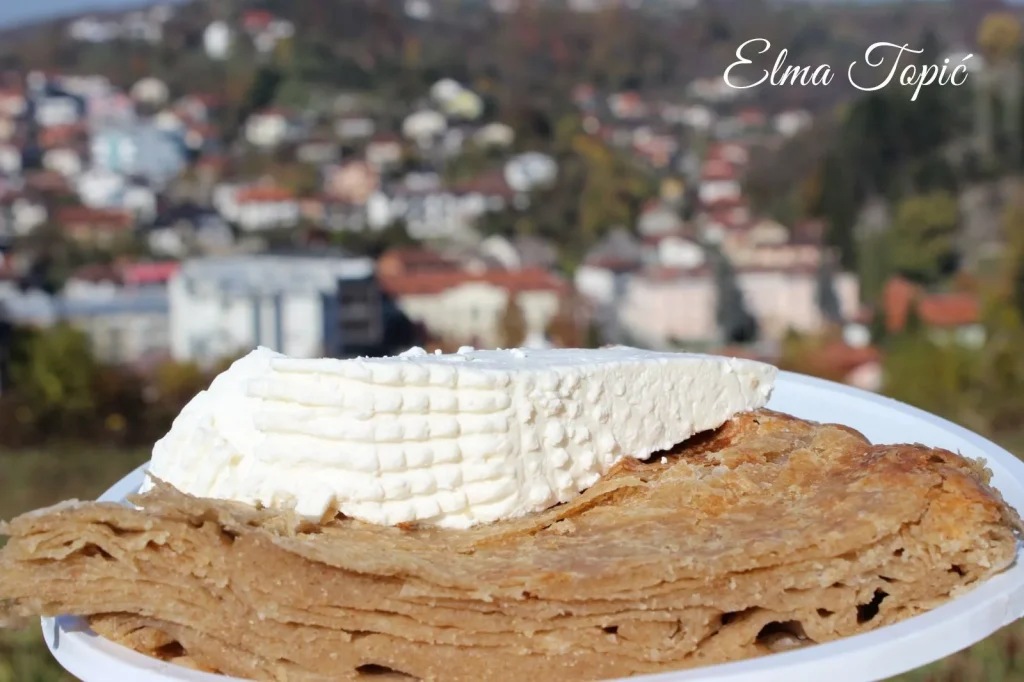Description (Preparation, Material and Symbolic Elements)
Krajiška masnica is a traditional dish prepared exclusively of homemade, organic ingredients: wheat flour, water, salt, oil, and homemade butter. The process begins with milling the flour and sifting it to achieve smoothness, which ensures a fine texture of the dough.

Throughout the entire process, precision, temperature control, and resting time of the dough are emphasized. These technical elements require experience and skill, often expressed through practices nurtured within families and communities, passed down from generation to generation.
Place and Associated Tradition – Western Krajina (Una-Sana Canton), Bosnian Krajina
Krajiška masnica is part of the broader cultural heritage of Bosnia and Herzegovina, encompassing a rich tradition of multiethnicity and shared identity among the country’s diverse peoples and communities. The role of families and communities in preparing masnica reflects a collective approach to food-making as a foundation of social life. Masnica is perceived as a symbol of togetherness, tradition, and continuity within local communities, and its preparation is often linked to special occasions such as births, weddings, religious and national holidays, and annual celebrations, which in Bosnia and Herzegovina are frequently multiethnic festivals and gatherings.
Material and Technological Elements
- Material elements: wheat flour, water, salt, oil, homemade butter;
- Techniques and processes: milling and sifting flour for smoothness; kneading dough for pastry sheets (jufka); dough resting; rolling out sheets (jufke); brushing with a mixture of oil and butter; flattening and shaping; layering and baking until golden brown;
- Textures and sensory qualities: a characteristic light, buttery texture with pronounced layers and rich aromas of baked butter;
- Language and dialect: use of local expressions and terms related to recipes and processes, preserving dialectal dynamics, tradition, and the identity of Bosnian-Herzegovinian culture and the Bosnian language;

Social Context and Transmission of Knowledge
Masnica is not merely a food product but a cultural practice that strengthens community identity. Its preparation and consumption serve as a ritual of togetherness, reinforcing family and neighborhood bonds and local tradition.
As a living part of both everyday and festive life, masnica connects generations, unites families and communities, and contributes to the preservation of cultural memory and Bosnian cuisine. Protecting this recipe as intangible heritage prevents its disappearance and safeguards the shared legacy of all ethno-cultural groups.